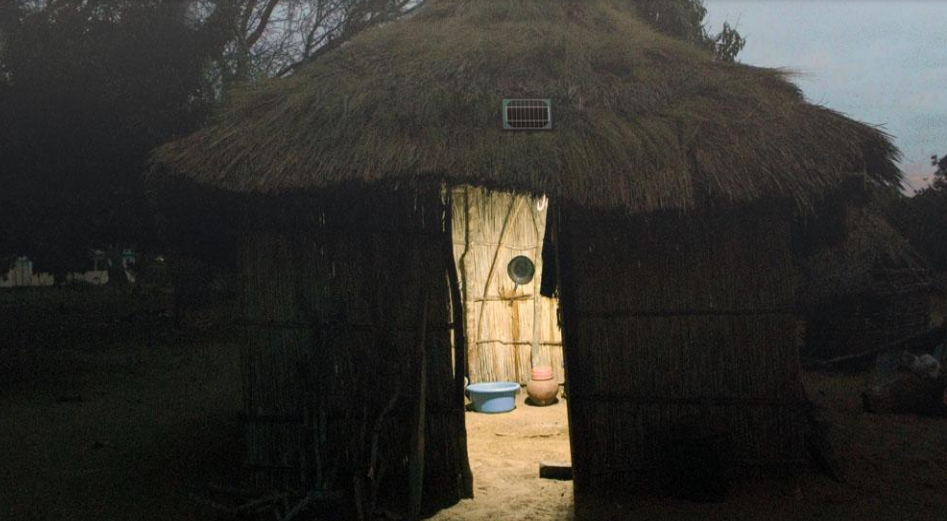
Whereas Mozambique made remarkable progress in 2014 with a 40% rate of electricity coverage, the extension of the national grid has proven to be technically difficult, very costly and sometimes an inefficient solution due to the remoteness and sparse population density. In 2015, the population reached 27,977,863 inhabitants from which 68% live in rural areas.
Agriculture is one of the most important sectors of the Mozambican economy accounting for 31.8% of the Gross Domestic Product (GDP) and providing a livelihood to almost 81% of the labor force. The Agricultural sector employs 90% of Mozambique’s female labor force and women manage one quarter of all farming households (USAID, 2017). In Gaza province alone, 53% of small farms (below 5 hectares) are managed by women. Women in rural Mozambique devote a great amount of time collecting water for crop irrigation using cans. The time and energy spent fetching water for farming and domestic chores reduces their involvement in other productive income generation activities. Access to modern energy services can therefore improve the lives of women by improving their health condition, reducing their time poverty, and improving the productivity of their income generating activities.
Access to modern energy services is fundamental to fulfilling basic social needs, driving economic growth and fueling human development. This is because energy services have an effect on productivity, health, education, safe water and communication services (Amie Gaye, 2007). Inarguably, modern services such as electricity, natural gas, modern cooking fuel and mechanical power are necessary for improved health and education, better access to information, and agricultural productivity.
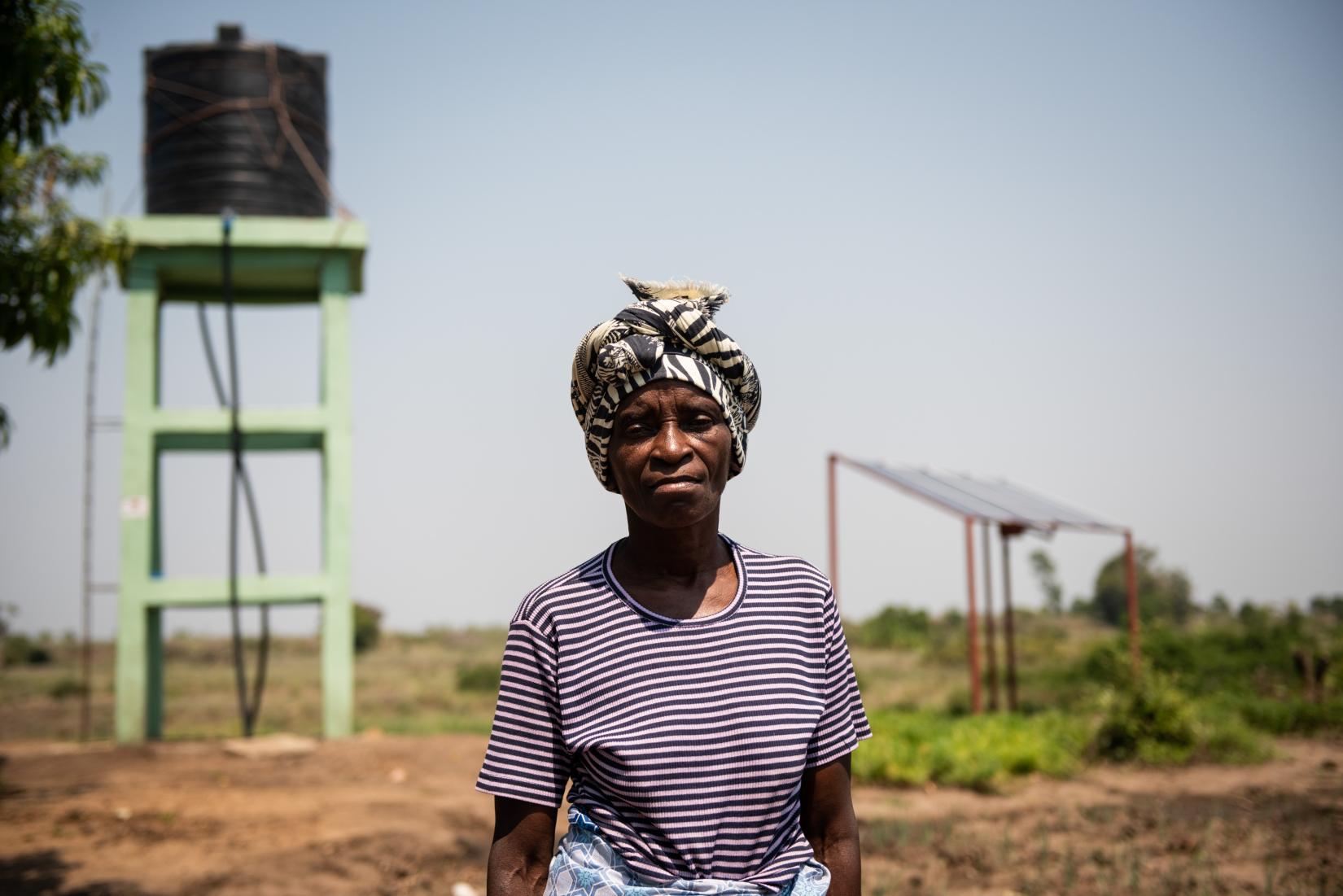
In pursuit of sustainable development goal 7 "Ensure access to affordable, reliable, sustainable and modern energy for all" UNIDO in the ambit of the Towards sustainable energy for all in Mozambique project continues to Promote the market-based dissemination of integrated renewable energy systems for productive activities in rural areas.
Financing Renewable Energy systems for environmentally friendly productive activities in rural Mozambique
“It is not possible to process local raw materials, diversify the economy, or increase the competitiveness of the productive sector, without access to modern energy, at an affordable cost, and environmentally sustainable”. –Jaime Comiche, UNIDO country representative in Mozambique
Mozambique is characterized by a hot and tropical climate, a favorable condition for the deployment of renewable energies such as solar, mini-hydro, wind, and biomass, especially in rural areas due to the high potential for organic matter, which includes the organic waste from the various activities carried out in rural households, including agricultural and livestock activities, especially in areas considered to be development hubs. On the other hand, small farms and agro-processing industries are facing the problem of electricity and dependence on diesel generators as well as environmental problems caused by emissions and waste.
In view of the current situation, UNIDO through the Towards Sustainable for All in Mozambique project promotes the adoption of alternative sources of energy. The aim of this initiative is to establish measures to change from traditional systems to more efficient and improved systems, as well as to induce the adoption of other energy options that are friendly to the environment. In March 2020 the project launched the BCI SUPER Credit Line for the financing of renewable energy systems for productive uses. The fund is the first of the kind in Mozambique allowing small and medium size Enterprises, Individual Entrepreneurs, Associations, Cooperatives, NGOs to access funds at a 7.5% interest rate. To date over 50 small and medium size industries and farmer associations have manifested interest in the credit scheme and guided on how to submit feasible and quality proposals.
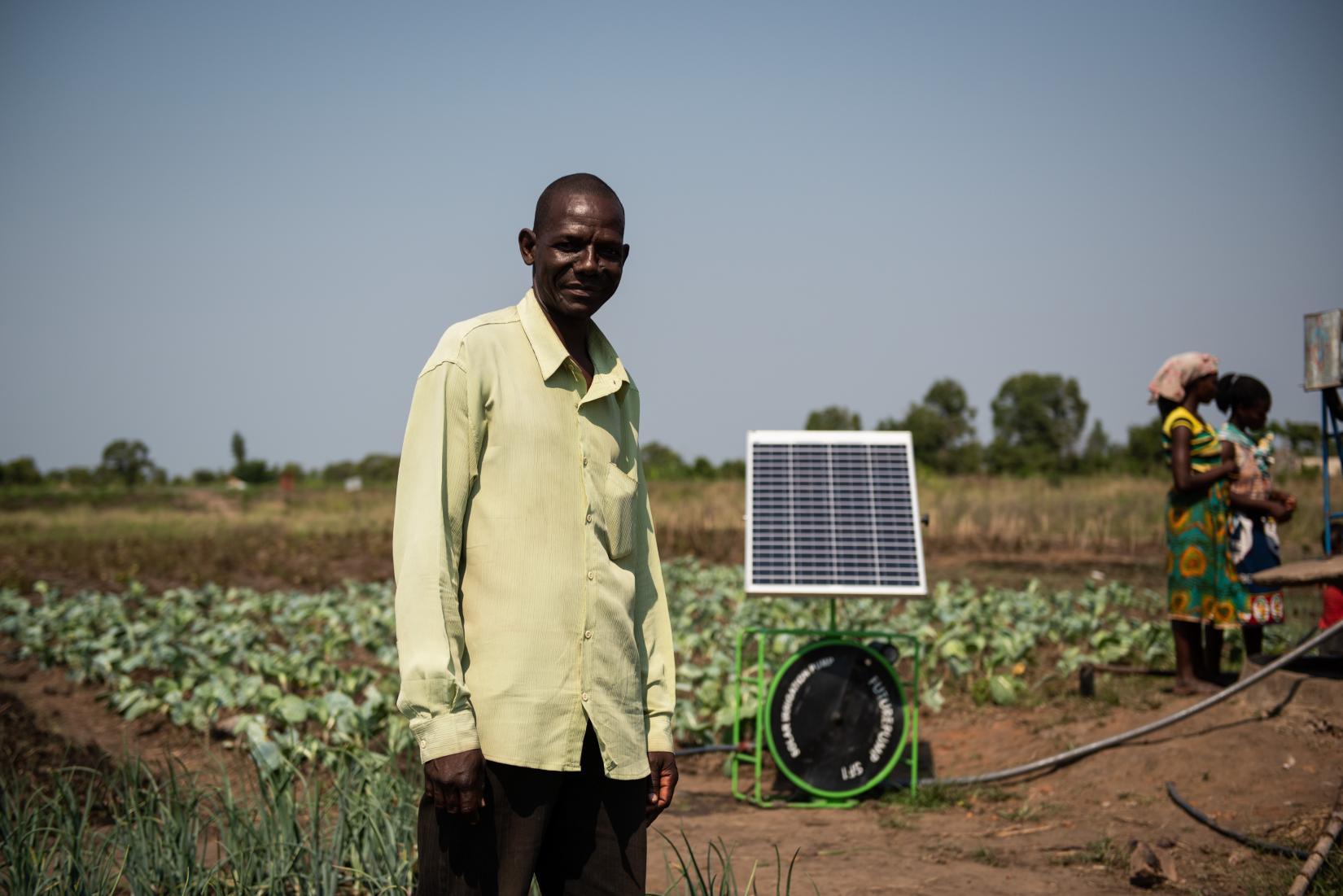
In addition to the BCI SUPER credit line, UNIDO with the financial support of the Global Environment Facility (GEF) is partnering with government entities like the Ministry of Agriculture and PMEs to implement demonstration and scaling up of investment projects focused on the use of Renewable Energy systems. In September 2022, three private sector organizations namely CHARIS, AFORAMO, and MAKOMANE- ADM were awarded contracts to implement investment projects for the development of renewable energy systems to support enhancing the agricultural value chain, commercial productive activities, and energy production from waste. The technological focus is on solar and biomass technologies. The three selected projects will produce a total installed capacity of 86.9 kW at a total funding of 243,095 USD. AFORAMO (Association of Small Private Water Providers), Mozambique will install a 63 kW solar photovoltaic system to benefit private water providers in Maputo, Matola, Inhambane, and Manica provinces. On the other hand, MAKOMANE-ADM, Mozambique will install a solar photovoltaic system of 15.5 kW and a biodigester of 8.4 kW in Zavala district (Quissico). Finally CHARIS-Associacao de Solidariedade Social, Mozambique will install a waste to energy system with 96 m3/day of biogas production capacity, benefiting local farmers, their families, small entrepreneurs of Inhambane province.

UNIDO through the Towards Sustainable Energy for All in Mozambique project with the financial support of the Global Environment Project (GEF) focuses on the demonstration and scaling up of investment projects focused on the use of RE systems. In May 2022 three private sector organizations namely CHARIS, AFORAMO, and MAKOMANE- ADM were awarded contracts to implement RE demonstration pilot projects
In September 2022 CHARIS - Associação de Solidariedade Social received funds to produce 35,000 m3 (around 96 m3/day) of Biogas to be used for cooking (domestic, small, medium and big industries), refrigeration, and lightning. The biogas will be produced using 30 different bio digesters (from 1m3 processing capacity to 10m3). This amount of biogas is equivalent to 4.4 MW/year of Flame power and 2.1 MW/year of electricity. The company will provide training for the installers and operators and establish small demonstration Biogas units in suitable small businesses and families processing coconut, cashew nuts and cassava in Inhambane Province. This will result reduced consumption of firewood and fossil fuels and provide cost savings for householders and businesses. Besides, by replacing dirty fuels with clean, eye irritations and complications will be reduced.
It is hoped that this project will boost the domestic and small-scale industries in Inhambane province, mainly for those processing coconut to produce coconut oil, soap and other sub-products, cashew nut and cassava, contributing to increased household income and viability of small-scale industries. Besides, the project will play a critical role in the agriculture value chain, mainly conservation of the harvest, one of the biggest challenges faced by the local/ rural farmers. The processing of these agriculture foods, as well the refrigerators side provided by the biogas, will help in the conservation of the food to be sold during long periods of times and as well saved for food security purposes for the communities.
Successful biogas demonstration units will promote interest in the community, so that adoption will become widespread. The early adopters will also gain experience and be able to promote the uses of Biogas and help other potential users.
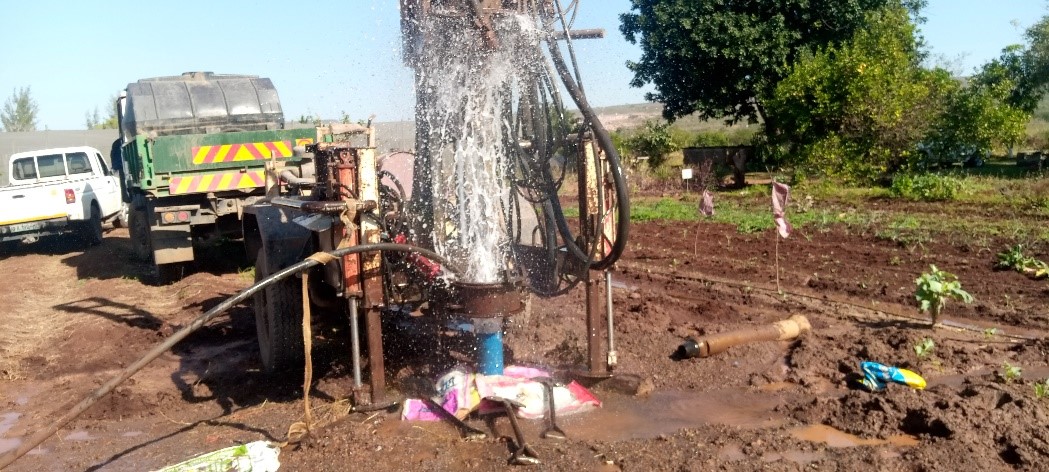
Quinta Irini, an agricultural and agro-processing initiative located in Mafuiane engages in a wide range of agricultural activities including agro-processing agriculture, fish farming, fungal beekeeping (mushroom production) and the raising of animals.
The smallholder farmer initiative just like other farms in the greater Maputo region experiences water scarcity crises especially in the dry season, leading to the loss of many crops due to intense heat, and low or no production. To abate the challenge, the farm in the past resorted to the use of a diesel fuelled water pump whose operational cost is very high and also detrimental to other agricultural activities like fish farming due to the emission of unfriendly gases to the environmemnt
The farm intends to turn the situation around by promoting the adoption of alternative sources of energy. The aim of this initiative is to establish measures to change from traditional systems that are detrimental to the environment to more efficient and improved systems, as well as to induce the adoption of other energy options.
Changes will also ensure the sustainability of the use of the biomass resource, including use of residues to improve the quality of productive soils.
With financial support from the Global Environment Facility (GEF), UNIDO in partnership with Ministry of Agriculture and Rural Development-National Directorate for local economic development, Quinti Irini will install the following integrated systems; Solar water supply system for irrigation and agro-processing; Solar Dryers for fruits and vegetables; Solar Grinding/Milling machine; and an Anaerobic Digester for biogas and fertilizer productionInformed. The purpose of the pilot project is to demonstrate how the adoption of integrated renewable energy systems for productive uses can contribute to increased sustainability, productivity and efficiency in the production and commercialization processes of agricultural products in the rural area of Mafuiane.
The process of submersible pump installation was commenced in July 2022 for irrigation of the Irini farm production area, as well as for the supply of drinking water to the community.
You can watch the video of the water supply system installation HERE
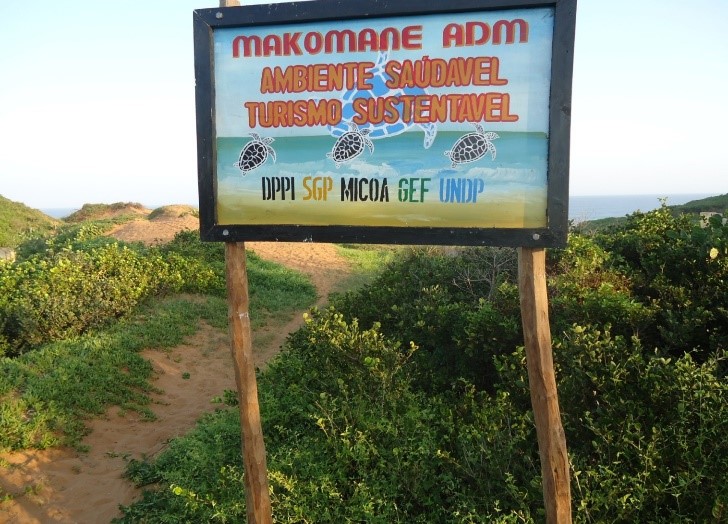
The TSE4ALLM project implemented by UNIDO with financial support from the GEF project seeks among other results, to demonstrate the technical and commercial viability of renewable energy systems in the productive sector, including agriculture and the agri-food industry through 4 project components namely: (i) establishment of a conducive policy and regulatory environment; (ii) capacity building and knowledge management; (iii) technology demonstration and scaling up and (iv) monitoring and evaluation.
In 2021, a call for proposals was launched to identify investment projects for the development of renewable energy systems to support enhancing the agricultural value chain, commercial productive activities, and energy production from waste. The technological focus is on solar and biomass technologies. MAKOMANE-ADM, Mozambique was among the three projects alongside AFORAMO and CHARIS-Associacao de Solidariedade Social that were selected to produce a total installed capacity of 86.9 kW at a total funding of 243,095 USD.
In August 2022, MAKOMANE-ADM, became the first recipient of the financial support and will Install a total capacity of 23,9kW of integrated renewable energy systems comprising of Solar Cold (10kW) storage to support Fish and animal farming activities and for conservation of fruits and vegetables; Biogass for community cooking and food processing (8,4kW); Solar irrigation system with elevated storage (5.5kW) in Quissico, Zavala district, Inhambane Province.
The company is one of the largest and more popular fish farmers in the Inhambane province that produces high quality fish for local consumption and to supply to larger markets including the country capital-Maputo. The 10kW solar cold storage system based on solar panels will allow the conservation of fish, encouraging the scaling up of fish farming activities, and reducing costs with feeding the fish after reaching adulthood. The system will also benefit local fishermen and farmers from neighbouring associations and cooperatives of Quissico allowing them to have more bargaining power vis-à-vis the market.
In addition, 5.5kW of solar energy will be used to connect an electric pump to supply water for reservoirs of 10,000 cubic meters of capacity. The water will be used for irrigation in the production fields of vegetables which are much needed in local and regional markets. The waste that will be generated from the agriculture activity will be used both to feed the fish and to feed the biogas system
In Quissico there is large abundance of animal farmers generating large amounts of animal excrement that pollutes the environment. On the other hand, local communities are heavily reliant on wood fuels for cooking which contributes to the accelerated deforestation in the rural areas. The animal excrement of cattle and/or birds will be used to feed a 8.4kW biogas system and the gas will be used for several purposes including: (i) baking local bread, drumstick tree biscuits and cassava which is a very healthy food and widely consumed in Quissico which will be sold by the association; (ii) provision of community cooking services where the general public will pay a fee to cook in the kitchen; (iii) the effluent will be used as a fertilizer to promote the scale up of organic agricultural production (horticulture); (iv) incentivize the collection and supply of organic waste resulting from the agriculture production to be delivered at the association for a fee; (v) select and use the organic waste either to feed the fish or as an input for the biodigester (biogas production);
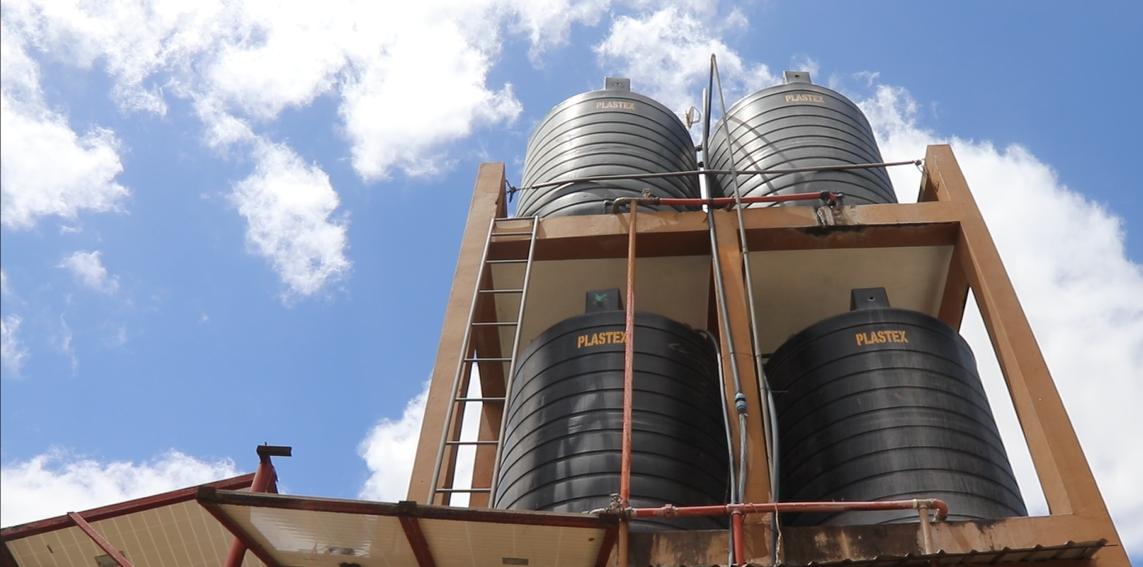
In July 2021 Shine Water & Serviços, secured a MZN850,000.00 (approximately USD13,500.00) loan to install a solar system for the supply of drinking water to 100 customers in FAO/Nhumbane community, Marracuene district of Maputo province. This was through the BCI credit line fund implemented by United Nations Industrial Development Organization- UNIDO, BCI bank, and FUNAE under the Towards Sustainable Energy for all in Mozambique (TSE4ALLM) project with funding from the Global Environment Facility (GEF)
In the past the company solely depended on a water supply system powered by the utility grid which often resulted in various challenges including limited supply of water caused by frequent disruptions of electricity supply, high operational costs, and equipment failures caused by the instability of the electrical grid.
“We used to receive water only twice a day but this changed with the adoption of another system that does not only depend of electricity, we now receive water 24 hours a day”, Female SWS client.
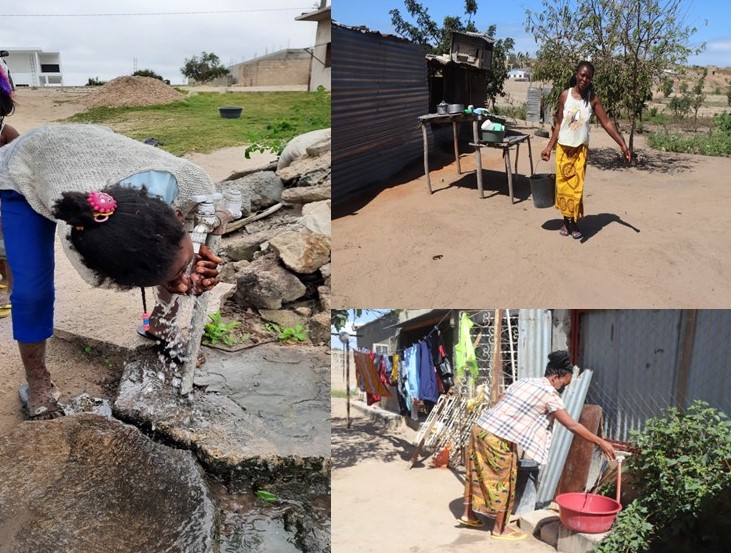
The installation process of the water supply system entailed, the placement of a submersible solar powered pump that extracts water stored in deposits of 10,000litre tanks in towers with an elevation of 12 meters high, which is subsquently distributed to consumers.
Besides supplying water to households, the Shine Water solar powered water supply system expanded its reach to cover health centres, schools, construction brick laying sites, and subsistence horticultural gardens. According to community members, most residents of FAO/Nhumbane locality (90% women) depend on the income generated from the selling of vegetables and fruits produced from their subsistence gardens and reliable 24 hours per day water supply is necessary for increased productivity, and thus more income generation
Shine Water & Serviços LDA, continues to remain at the forefront in providing a reliable solution to the water supply related challenges that the of FAO/Nhumbane community faces. “In a month’s period we shall have a fully-fledged solar powered water supply system installed and more clients accessing water 24 hours a day” Mr. Aly Mussagy- CEO Shine Water, LDA
The company’s clientele has grown from 20 in January to 50 customers currently, with an average consumption of 500.00 meticais that corresponds to an average monthly revenue of 25,000.00 meticais. It is hoped that water will be supplied to more 50 house holds in the coming 6 months.

